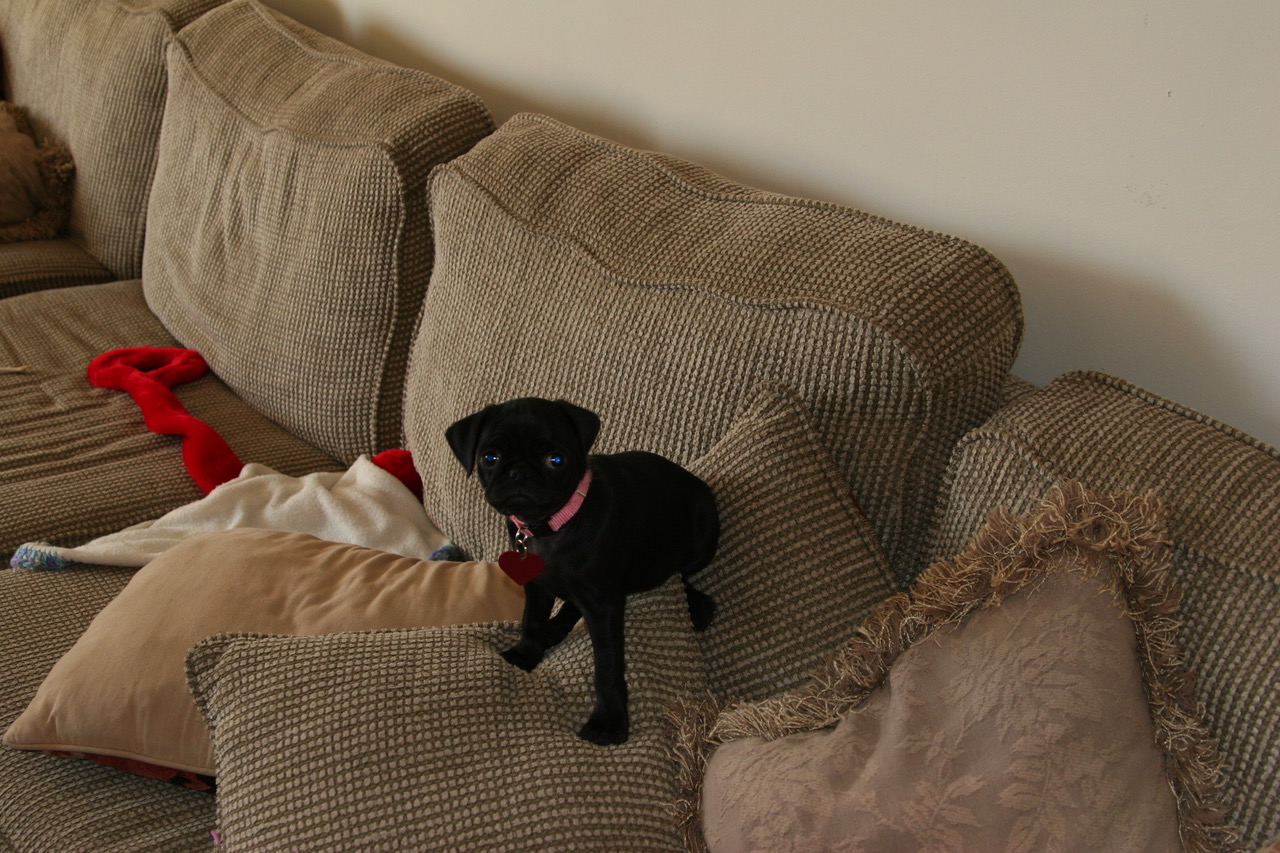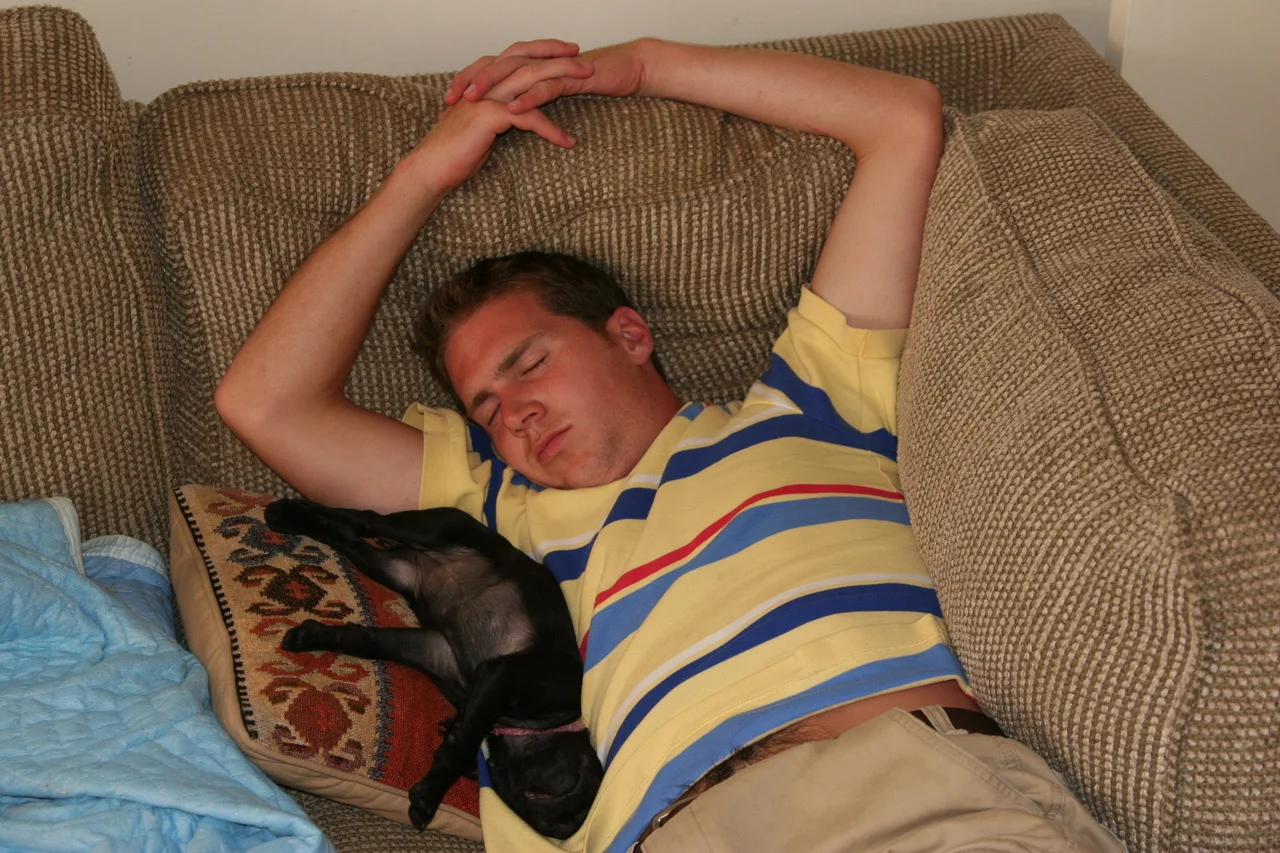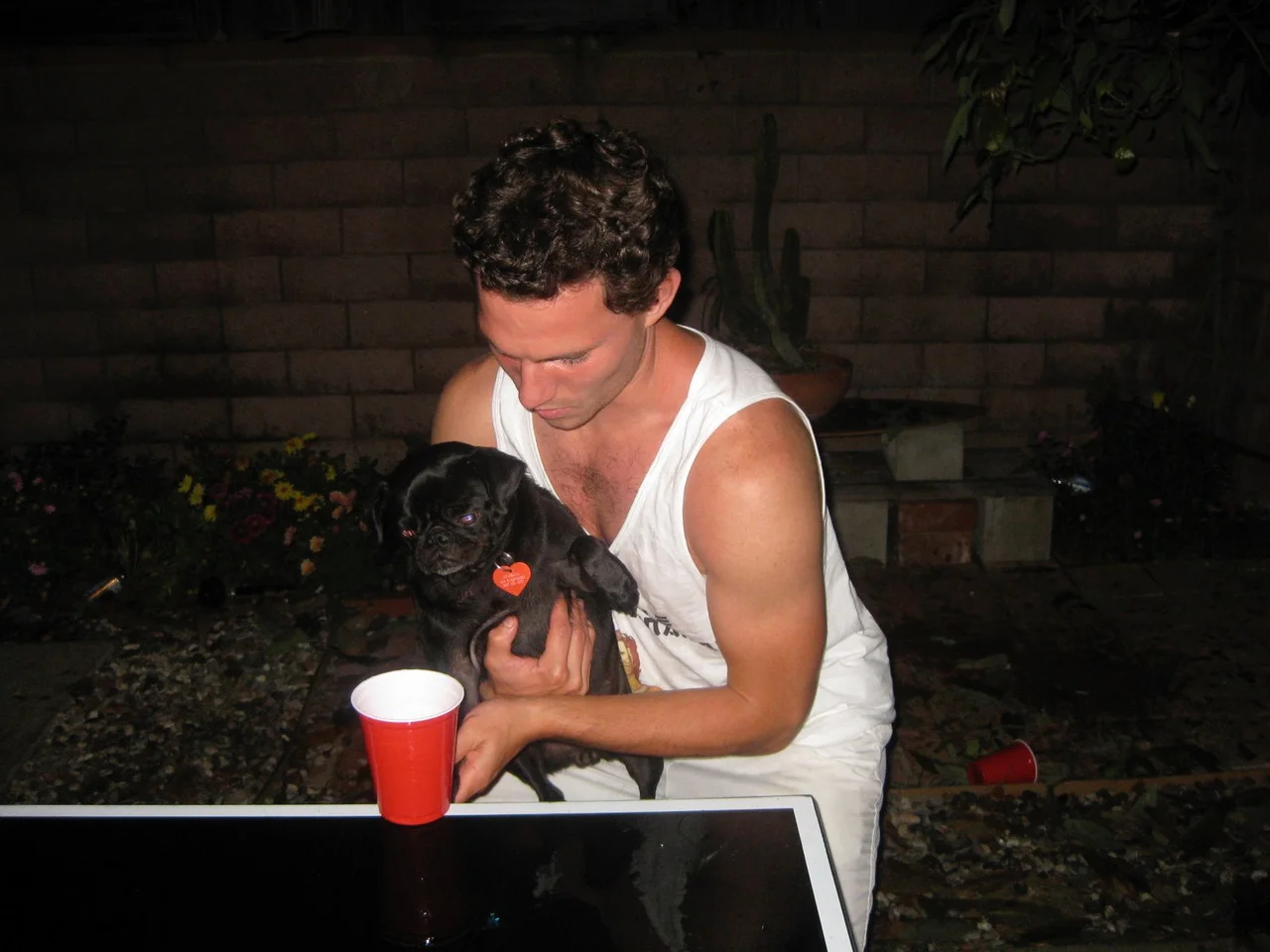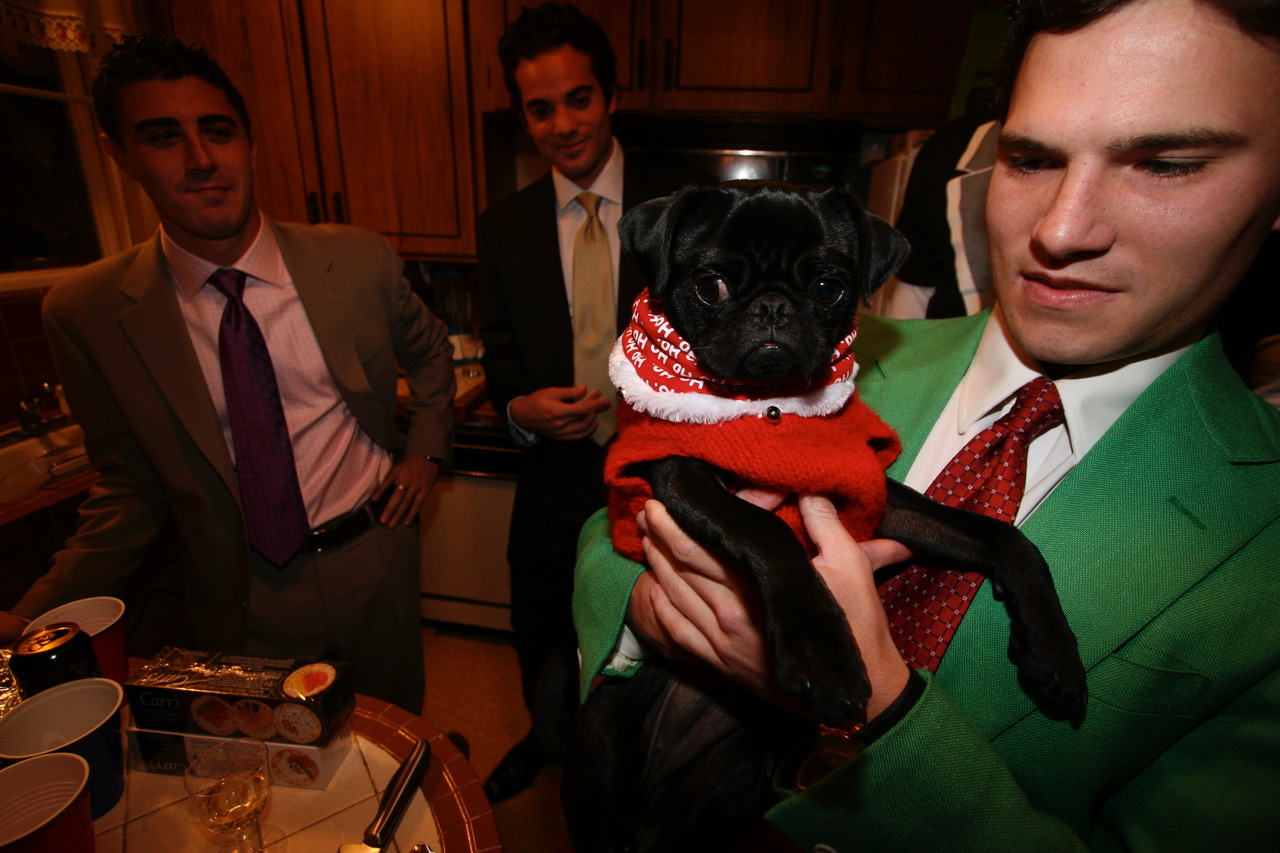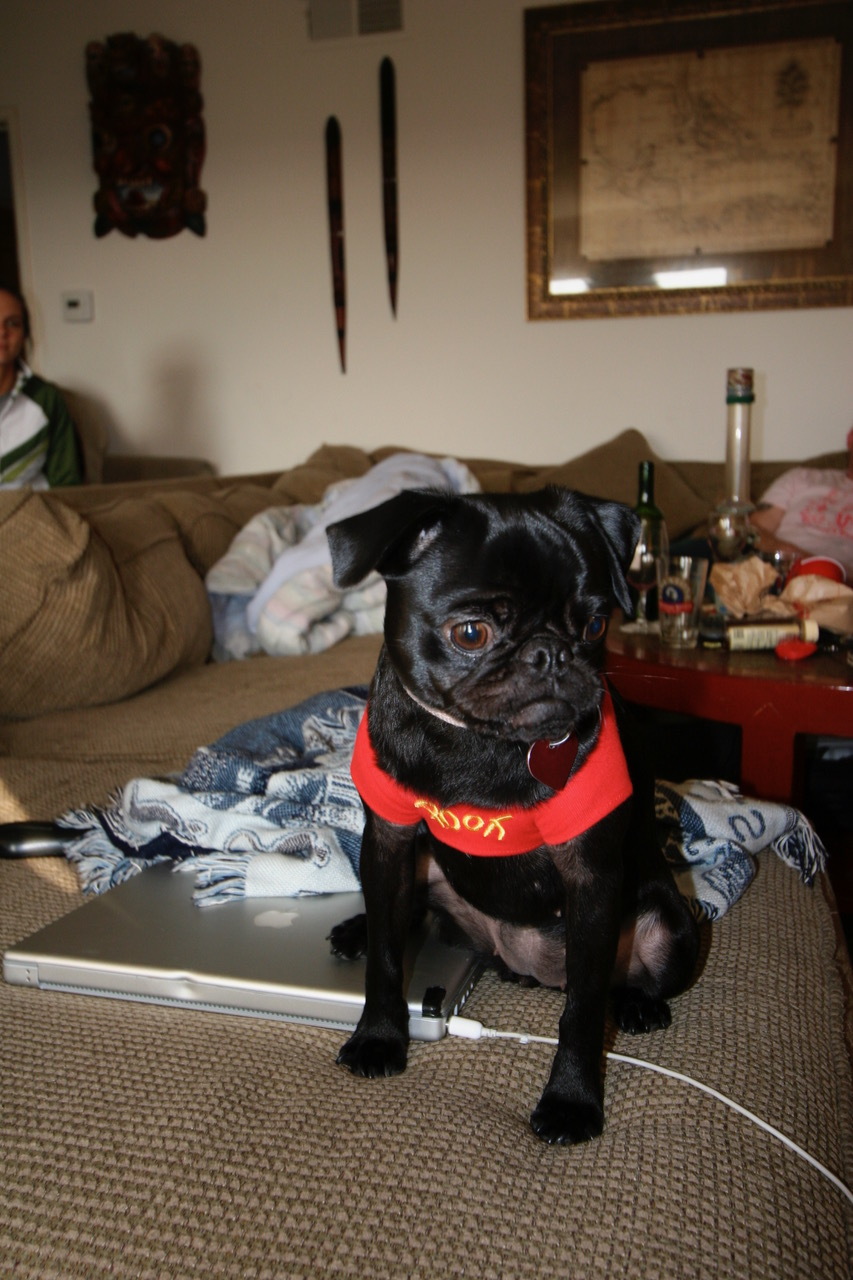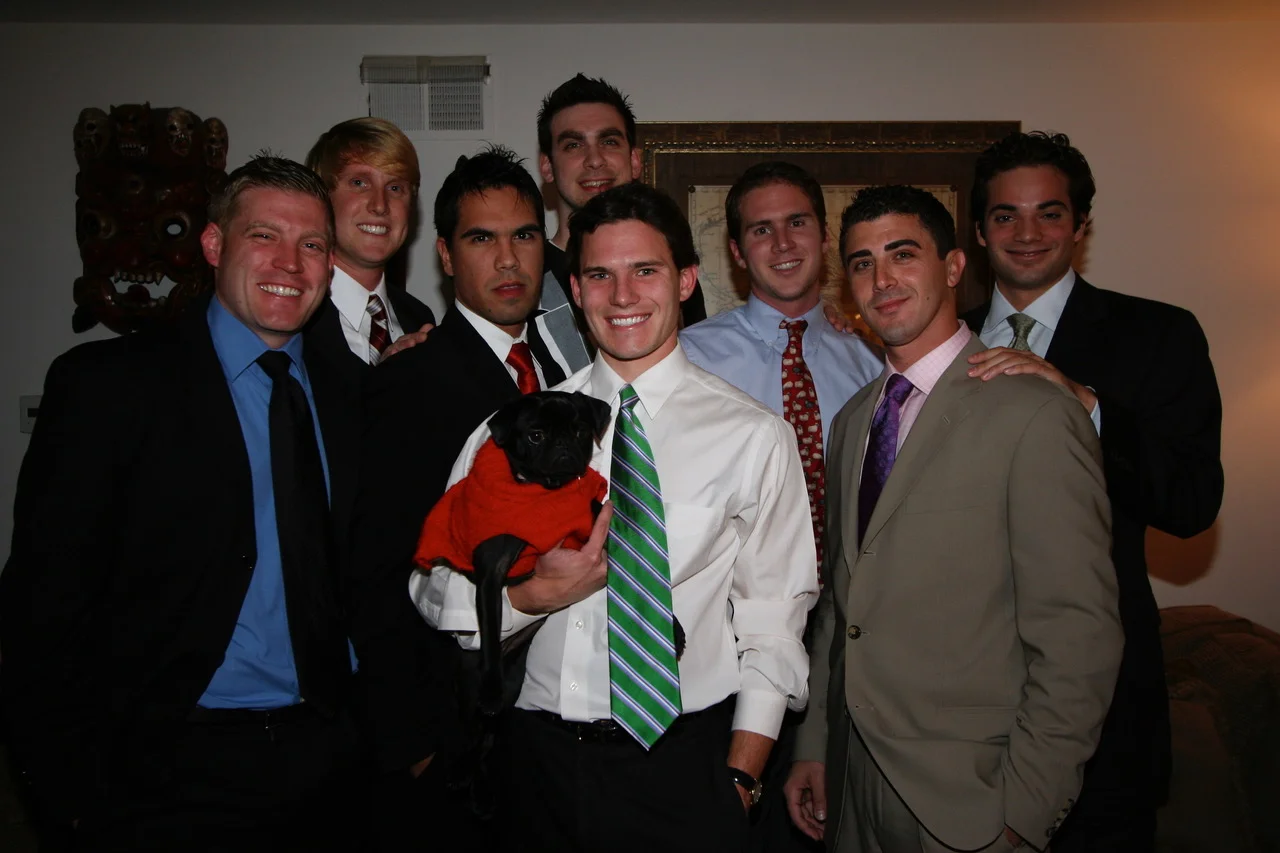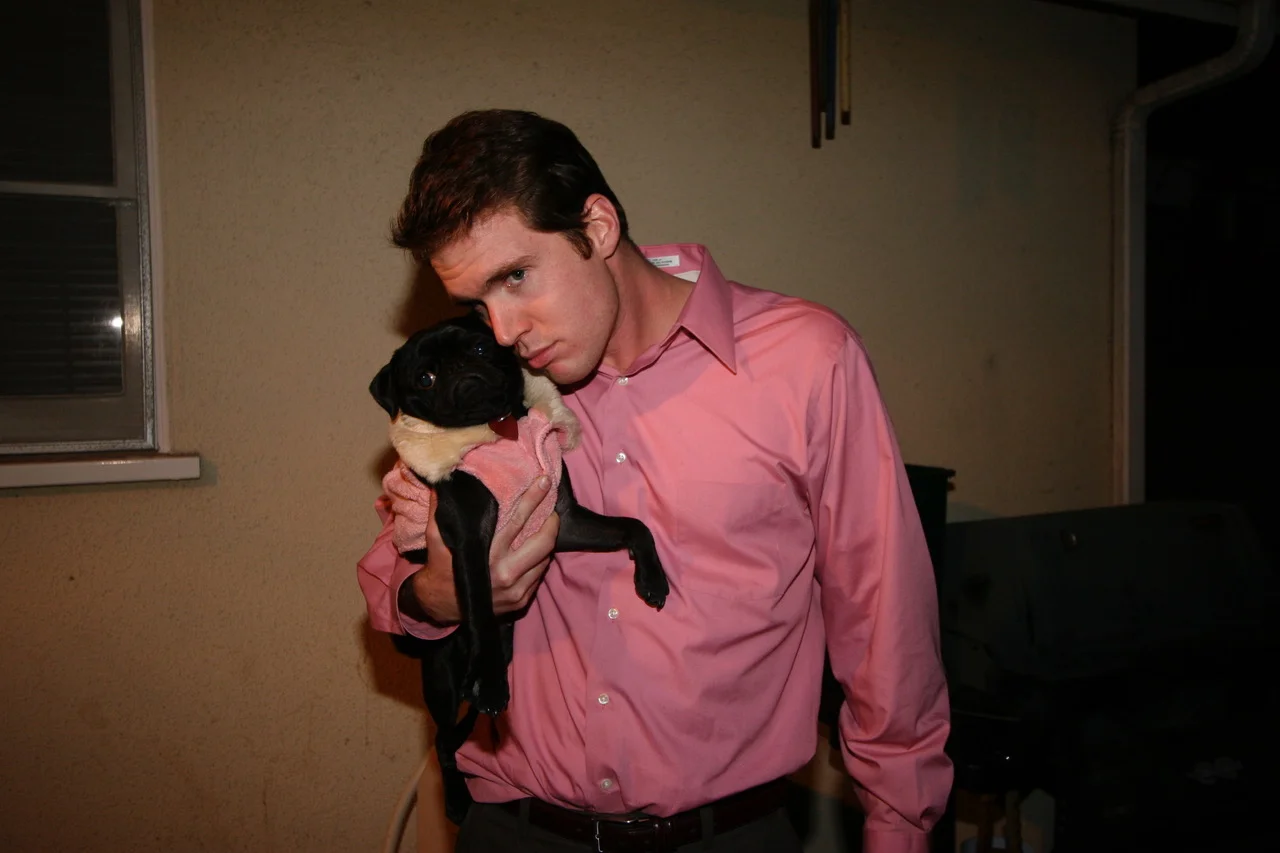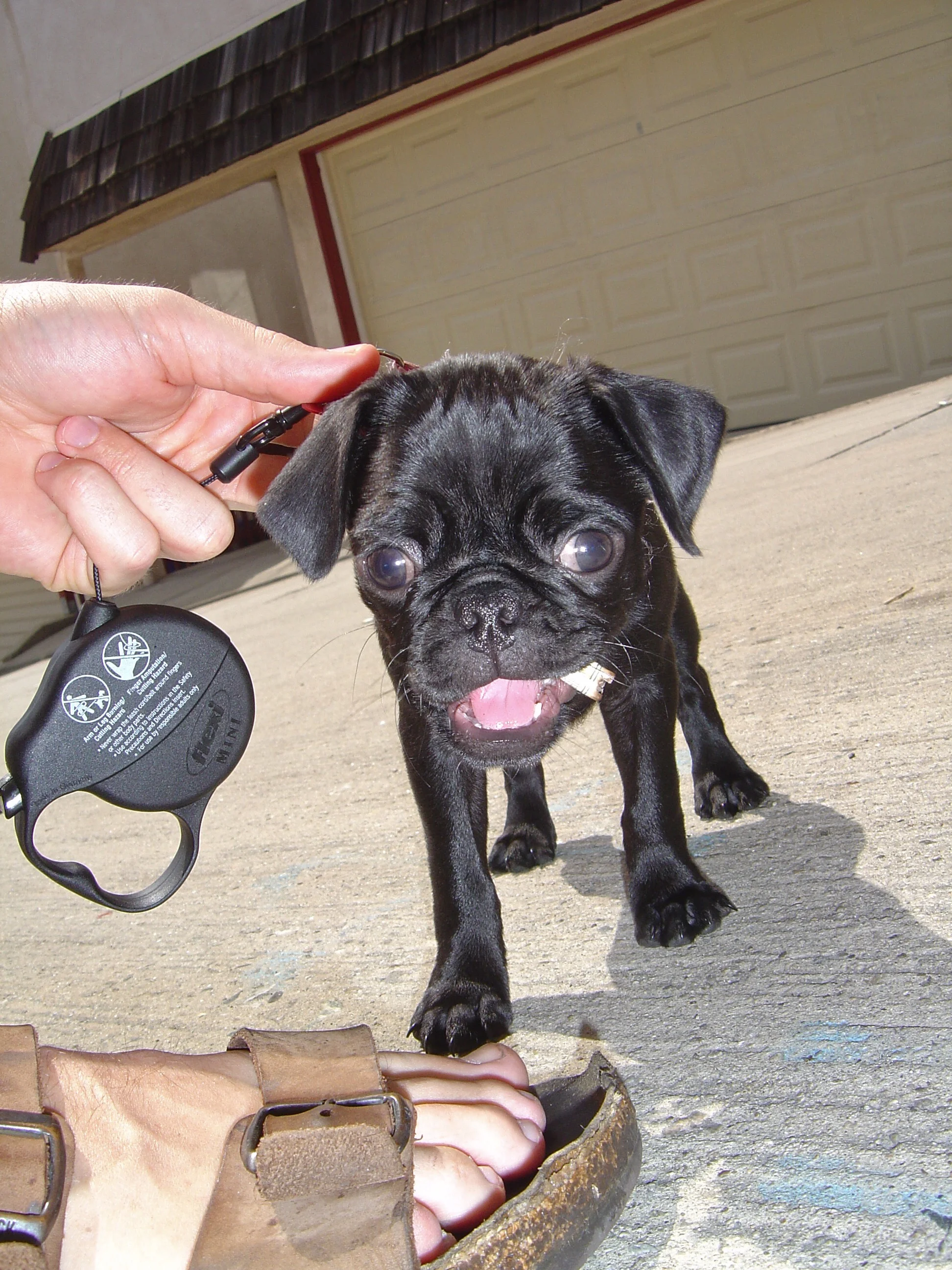August 5th, 2018
Typical house in Bärenstein.
“Anyone who has a why to live for can get through any how”
As I was finished working out on Friday morning I went back to the locker room and saw that Doreen had tried to call me several times and texted me twice - 1.) “Come home now” 2.) Georgie died. My heart sank. I immediately felt like I was having an out of body experience. How is this possible? I just had to calm her down this morning cause she was running around the flat like a crazy dog and she was super active the night before on our walk. I quickly got my act together and sprinted home. In my head were countless thoughts including this is a sick joke and when I got there she would be alive or possibly that I could do something to revive her. The truth was much simpler and it hit me just as I approached our building, out of breath and dripping in sweat and tears. Georgia was 13 and this day was coming whether or not we wanted it to come or not. I have known Georgia all of her life. I have been through so many experiences with her. We have lived with her on the beach, on a farm, and on an entirely different continent. Georgia was one of the most traveled dogs that I had ever seen before support animals were a thing. As I walked into the flat there was an unease that hadn’t been there before. I quickly got my act together again and remembered a Nietzsche quote I heard 20 years ago at LMU - “Anyone who has a why to live for can get through any how.” I had three other “whys” to live for and my feelings and disbelief needed to be suspended immediately. I walked through the hall to see Doreen on the couch, head in hands, crying while Logan was struggling through the tears to ask “why” and “what happened to Georgie.” Georgia quietly suffered a heart attack or stroke while eating her breakfast. She collapsed and silently succumbed to the end of her long life. Logan and Doreen witnessed the final moments of this terrible tragedy and there was nothing anyone could do for her. For the rest of the day everyone was sad but I was by far most concerned about Logan and Maya - the two creatures that didn’t completely understand what had happened. Georgia was Maya’s support animal after all, and never would have been able to make the journey to Germany without being in the same crate together. Maya had just witnessed her best friend die. Doreen cleaned up the mess and I took Georgia to the vet to be cremated. It will take some time to get back to any semblance of normal.
Georgia April 20th, 2005 - August 3rd, 2018.
You will be missed but no one will ever forget the joy and love that you brought to so many people’s lives.
Unfortunately this had to be put on pause because we had always planned to go to Doreen’s birth town for her Opa’s [Grandfather’s] 80th birthday. The drive was sad and full of moments of anguish.
I’ll admit I don’t know how to write the blog this week, and as I write it, I’m still not sure I should. Aside from Friday’s traumatic incident I was experiencing, for the first time, Doreen’s childhood home and extended family. For most people this is a normal occurrence and something that tends to happen before 6 years of marriage and a 3 year old child. However, there is nothing normal about this situation and perhaps that’s why the tone this week will be from a single perspective - mine.
Doreen is from Bärenstein, Germany; which is on the Czech border - we literally went back and forth for gas and groceries while we were there. For 31 years, 28 years, and 8 years, Mike, Claudia and Doreen lived in East Germany under the DDR. From an American perspective it’s un-fathomable how life could be happy or prosperous - after all the East fell to the West because it was unsustainable. We know all the stories of Soviet oppression and several times on this blog we have touched on the military state and tragedy that was the DDR. However, things are always more complex and layered than we want them to be.
Mike and Claudia made the decision to leave shortly after Doreen was born but weren’t granted passage until ’89, shortly before the wall fell. In the 8ish years where they waited for passage to the West, they were spied on by the Stasi via agents that were family members - the very people we were going to visit. This wasn’t unique to the Schlesiers, it was standard. Years later Mike and Claudia would understand the details when the government forced the collapsed DDR to publish their records. Even without the records they knew because they lived it.
I remember 10 years ago when Doreen told me that she was from East Germany. I felt a sense of misplaced pity; a result of my privileged American upbringing that I would only later begin to understand. Over the years I’ve realised privilege doesn’t equal happiness and the human condition is an inch wide and a mile deep. This entire weekend has been a lesson enforcing that.
The damage the DDR did on Germany can’t be ignored but if you suspend that for a second you begin to see the East in a different light. To begin with, Bärenstein looks a lot like the town in Iowa where my folks are from - just more German. It’s a town that once thrived on many factory-based industries which are long since gone. The story of Bärenstein isn’t different then the story of Flint, MI. When the jobs vanish so do the young people and the older generation are left to watch the town die off. By the time Logan is a teenager Bärenstein will likely not exist without some kind of tourism or digital economy driving young people to live in the country again - which is sad because this place has a lot of potential. As a child Doreen enjoyed playing in the forest and had free reign to walk from one end to the other without her parents worrying. The area is beautiful and a haven for outdoor sports all year round. The people who have stayed take impeccable care of their homes & land and the whole town looks like it’s only one generation away from being featured on Air B&B and Trip Advisor’s “10 most out of the way places you have to see.”
I’m used to old school German’s (especially from the East) hating me because I’m American; but funny enough, that didn’t happen in Bärenstein. The flat we rented was attached to a little farmhouse overlooking the town. Andy, the owner, has lived here with his wife their entire life and takes great care of the property. When we arrived he was tending to the bees he keeps while his wife was cleaning the outdoor furniture for the evening’s festivities. The couple helped us get settled in and then surprised Logan with a ride on the tractor to park it in the garage. He warned us that later in the evening they were hosting a rehearsal with a little choir group they belong to and to let them know if they were singing too loudly. When we returned from dinner there was little rehearsing going on except for the spontaneous drunk carol they would bust into. These people were an absolute riot and even offered us to join in the fun while delivering some fresh beer to our door step.











For dinner we went to a little place down the street that Claudia knew. The restaurant, Waldesruh, is run by one of Claudia’s classmates who came back many years ago to run the place after his parents no longer could. Volker, owns the place now, took great care to provide the best service possible with linen napkins, table cloths and of course delicious cuisine. The inside of the place is a beautiful tribute to the old mining community that once thrived in this area. The tradition of mining dates back 100’s of years and is what built the community in the first place. To date, the wooden figurines seen in so many Christmas displays around the world come from this community. They tell the story of the village lighting the way with candles for the miners to return safely after long, hard and unsafe days toiling in the silver mines. Waldesruh is a tribute to Bärenstein and yet on a beautiful summer Friday we were the only dinner guests he had. It was rather amazing that this man would take such great care to preserve his families restaurant knowing full well business was trending down.


























On Saturday we walked through the woods and explored Bärenstein on foot. Afterwards we drove to the next town over. Annaberg-Buchholz, is a little town in the state of Saxony founded in the Ore Mountains in the 12th and 13th centuries which has managed to figure out how to recover from the DDR and the loss of jobs. Perhaps that’s because the collapse of the DDR wasn’t the first time Annaberg had to recover. The town was built because of the silver, tin and cobalt mining industry and has weathered many social and political shifts in its 800 year existence.
Annaberg is beautiful and primarily a tourist destination in the infamous Saxony region of Germany - especially during the Christmas season when it transforms into a fairytale scene similar to the wooden sculptures they are famous for.






















Other than the beautiful walking streets with gorgeous shops and shopping, the main attraction is the church. So many of these villages were built around and forged in the christian tradition where the church was the centre of all activity. St. Anna’s church was built in 1499-1525 and is well known for its Gothic hall church style. The sculptures around the hall tell the story of a farmer that couldn’t feed his family until God showed him the rich mines of Saxony that saved him and his family - a classic Gothic archetype but with more colourful artistic representation. The organ, which was built in 1884 has an astonishing 4000 pipes and 65 registers. The bell tower has a family that resides in it full time and takes care of the clock maintenance as well as the rigging of the bells - a tradition rarely seen in modern society.























Although I was educated by the Jesuits, I fell out of the faith long ago. However, my heart was full when I overheard Claudia explain to Logan why believers light candles and his immediate reaction was to light one for Georgia.
After a trip to top of the hill for lunch and to see the views it was time for the main event - Doreen’s Opa’s 80th birthday. Buried in the forest was a brightly painted hotel and restaurant selected for the occasion. The outside was decorated with all types of trinkets and sculptures while the inside was a virtual museum of wooden sculptures - it was as if Bennigan’s and TGI Friday’s had visited before launching in the US. In true German fashion we had cake first while various speeches were taking place. When it was Opa’s turn to speak he made sure to mention how happy he was that his entire family was in attendance and even had a gift for Logan. For over 5 hours we sat and conversed, ate, and generally got to know one another - we were even entertained by a pair of German ‘comics’ who told ‘jokes’ - think in terms of “I’ve got a problem with my wife…” The whole event reminded me of countless similar family gatherings we would do at themed restaurants when I was a kid.
















































On Sunday we stopped by Doreen’s grandparents to say goodbye and were once again met with graciousness. As we drove home through the countryside seeing Eastern town after Eastern town I couldn’t square the circle. It’s not as simple as time cures all or forgiveness is more powerful then hate. And then a story Doreen overheard and recounted to me struck a cord. She had learned the night before that her Opa was born in Czechoslovakia and at the time was considered a “border German” [a terrible racial slur] and not welcomed by the locals. Eventually his family was forced out and had to relocate on the German side. In the beginning they were nomads. They didn’t have a place to stay so they would sleep wherever they could. They had no money so they would steal eggs and bread to survive.
The DDR provided these people a sense of security that they didn’t have earlier in their lives. As an American, it’s easy to see tyrannical leadership and those they lead through the same lenses. The truth is it’s not that simple. Lately I’ve been following some reporting on lawyers who are tasked with tracking down suspected Nazi concentration camp guards and those involved in Unit 731 in Japan during WWII. When they find these men they are brought to justice despite their age or any of the positive accomplishments they have achieved in the 75 years sense. A man found alive today during either conflict would have been a teenager and too young to have been a decision maker in either atrocity - yet our reaction is to treat them with the same level of distain we would treat Hitler or Stalin. Not all actions in terrible conflicts are equal and we shouldn’t lose sight of that. Punishment is supposed to fit the crime and not every crime deserves maximum outrage.
From 1961-1989 the DDR did some terrible shit to it’s people. Arguably, Germans had some form of terrible shit done to them since the turn of the century. The people that lived in the DDR did some terrible shit to each other too. Before going in and meeting these people it was easy to construct the hero and villain archetype. However, what struck me the most was how easily that archetype fell. There’s no hero or villain here, just old people that did some terrible shit to each other 30 years ago. I didn’t go through it so it’s not my place to judge or help navigate the path forward. More striking to me was that they looked a lot more similar than different to Americans. If the same conditions that drove to the DDR happened in the US a similar situation would easily playout - family against family, money for information, and tyrannical hierarchies. We’re not above it, it just hasn’t happened, and if it did what would people think of us 20, 30, 75 years later? So maybe the circle doesn’t need to square. Maybe it’s up to Logan to square the circle.
When I started this blog it was intended to be a record of our experiences and a compliment to my journal that I will one day gift to Logan. I suppose I foolishly thought “The McNeill Experience” would always be synonymous with exciting adventures and happy tales but that’s not a complete set of experiences. We never would have chosen the week to go this way but perhaps that’s the point of life. The experiences that define you aren’t the ones you always choose. They are the ones that choose you.
Until Next Time,
The McNeills






